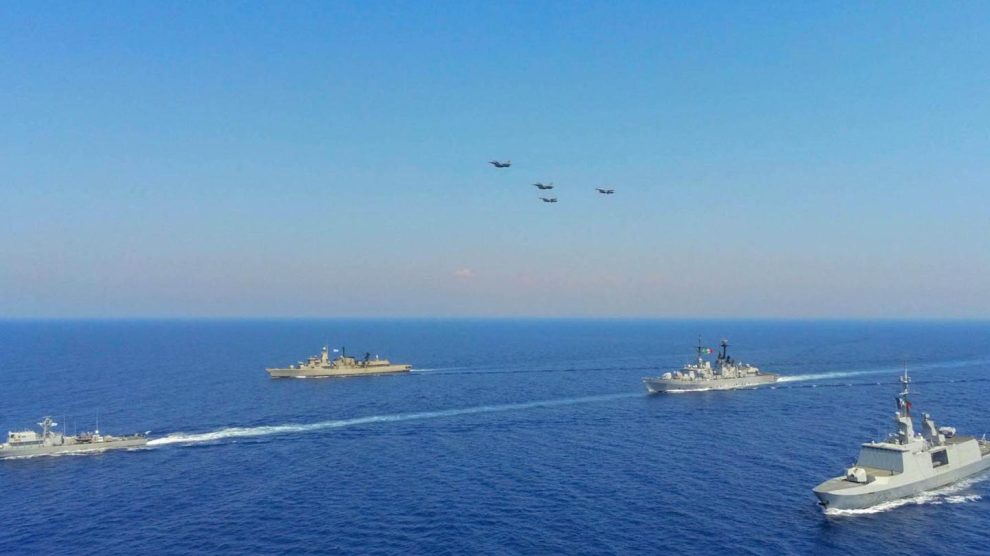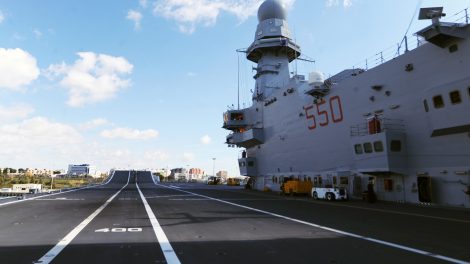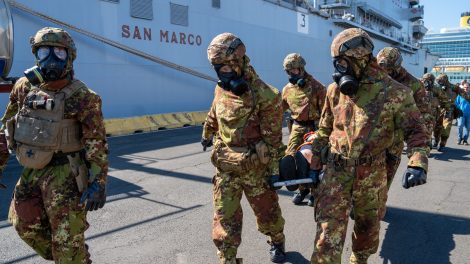Planning Mediterranean security. On Tuesday, Defence Minister Lorenzo Guerini presented “Security and Defence Strategy for the Mediterranean,” a plan detailing the line of action of Italy’s Armed Forces in the basin.
- Its cornerstone is coordinated inter-force and inter-agency action, leveraging the intergovernmental approach to involve all spheres of physical efforts and national policy.
- “The Mediterranean, and more broadly the wider Mediterranean, is [an area] of prime national and strategic interest. The tensions affecting it trigger processes that reverberate in Europe, especially in Italy,” noted Minister Guerini.
Right. How? To ensure its own stability, reads the plan, Italy must employ all the available inter-force capabilities – balancing persistent presence and rapid intervention – to prevent crises and avert possible escalations.
- Italy can use its unique geography, diplomatic ties and military capabilities to strengthen its stabilising activity. All these assets, including the military kind, are an added value to Rome’s alliance framework – i.e. NATO and the European Union.
Keep looking south. At the upcoming NATO Summit in Madrid, Italy will pressure allies to keep the right amount of focus on the southern flank while reinforcing the eastern boundaries.
- Minister Guerini said as much when he met with his Estonian homologue, Kalle Laanet.
- He added that Rome should play a leading role in coordinating the southern approach “by virtue of its familiarity with the countries on the southern side and the attractiveness of its social model, as well as a particularly suitable economic-legal structure.”
It’s a crucial crossroads. The Mediterranean sits at the junction of three continents, and it’s the fastest, safest and most economical route between the Indo-Pacific and the Atlantic Ocean, hosting around 20% of the world’s maritime traffic, specified the minister.
- Thus, it’s unsurprising the area “catalyses the interest of actors with global ambitions” and aims to control the commerce of raw materials and the availability of trade routes.
- Some are even committed to increasing their influence in this quadrant, including through military deployment.
- Russia’s invasion of Ukraine is placing additional stress on the Med’s southern shore. Worsening regional instability tends to affect the EU directly.
Heads up. In the face of this renewed global competition, Minister Guerini believes it’s necessary “to pay the utmost attention and be vigilant, in the interest of peace as well as the protection of national interests. Our security is inseparably tied to the stability of this sea and that of the neighbouring areas.”




